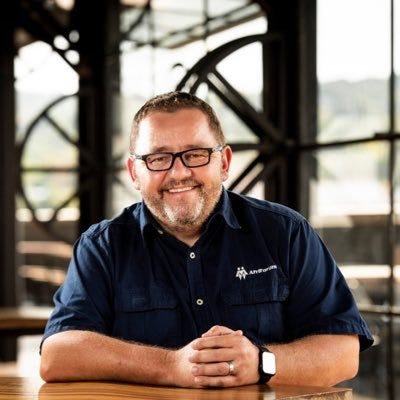Vaccines: Is Freedom More Important Than Force?
"We set the precedent that the state might use force in the future to impose something with which we disagree, if we today allow the use of state force regarding those things with which we agree..."
Written by: Kallie Kriel
The history of humanity - and more specifically that of Afrikaners - is characterised by the pursuit of freedom. However, in contrast with this tendency, history is also marked by seemingly irreconcilable differences in opinion on the personal level as well as underlying tension and strife within our communities, institutions, and even families.
A difference of opinion in itself, of course, is not necessarily a bad thing, as it adds to the ongoing reflection by cultural communities about the best solutions for the problems they have to face. When these differences in opinion result in full-scale strife, however, the community’s ability to work together is undermined, even on those matters on which there is agreement.
A well-known example of this phenomenon was the broedertwis (family dispute) that took place between the supporters of the erstwhile National Party (the Natte) and the South African Party (the Sappe) during the first half of the previous century. Extended families, churches, and communities were cleaved in two - and in some instances even households. This made cooperation around community issues and matters virtually impossible, ultimately to the detriment of the whole community. The intolerance towards differences was also diametrically opposed to the pursuit of freedom, which obviously included the freedom to have one’s own opinion.
Afrikaners were also embroiled in a bitter dispute more recently, during the final decade of the previous dispensation. This time the dispute was between supporters of the National Party (NP) and the Conservative Party (CP). Unfortunately, this dispute resulted in a situation where neither of the two groups could formulate and present a sustainable, long-term solution. This was ultimately beneficial for the ANC and detrimental for Afrikaners. Freedom was once again the victim.
AfriForum has worked diligently towards build bridges across the historical divisions between Afrikaners since its inception 15 years ago. This initiative has thus far exceeded expectations. We achieved this bridge-building by focusing on Afrikaners’ shared communal interest: that everyone desires building a better future for themselves, their families, descendants, and community, on a foundation of mutual acknowledgment and respect. Differences in opinion between Afrikaners are discussed maturely. The emphasis is on those issues which are in everyone’s shared interest because, by putting more energy into those issues rather than our differences, we can achieve more prosperity for everyone.
A practical example of this approach is AfriForum’s neighbourhood watches; around 10,000 volunteers spread among 164 neighbourhoods, who all share the goal of making their communities safer. It makes no difference to a successful neighbourhood patrol whether the person in the car with you voted “yes” or “no” in the 1992 referendum, or whether they now choose to vote for the DA, FF+, ACDP, or a different party, . All that matters is that they are working together to serve their communities, despite their differences.
The successes achieved by AfriForum and the Solidarity Movement at bringing Afrikaners together despite the clear differences in this community is supported by internal research among AfriForum’s members. This research shows that members are largely spread evenly across the group comprising the Afrikaner centre; about 80% of Afrikaners.. There are smaller groupings on both the far-left and far-right of the spectrum that tend to be hostile towards AfriForum. This, however, is not adverse for AfriForum because the presence of those on the edges does not prevent the 80% from working together and making progress.
We must preserve the great progress that has been made in having Afrikaners across a wide spectrum work together. We must not allow new differences in opinion to result in new, full-scale strife. We must therefore guard against the possibility that the current debate over whether to get vaccinated against COVID-19 or not, or unnecessarily pitting vaccines and Ivermectin against one another, becoming a dispute that results in coercive measures being imposed.
[caption id="attachment_11851" align="aligncenter" width="400"]
Author Kallie Kriel is CEO of AfriForum.[/caption]
I exercised my freedom of choice and, after careful consideration, chose to get vaccinated. As far as I am concerned, the benefits of getting the vaccine outweigh not getting it. The benefits of the vaccine are also detailed in a report composed by the Solidarity Movement. I have already had my second jab without any side-effects.
Some of my best friends have however personally decided to not get the vaccine. That is their right, just as it is my right to choose otherwise. This approach underlines the understanding that we do not consider ourselves qualified to make decisions on behalf of others about their own personal affairs. This mutual respect for each other’s opinions means that we can forge ahead and focus on those issues that are common to us all and which focus our energies.
It is within this context that AfriForum fights for every person who chooses to take the vaccine to have access as soon as possible, with as little delay as possible. AfriForum has already undertaken legal action to ensure easy access to vaccines. AfriForum will also oppose, based on the same principle of freedom of choice, any government measures that aim to compel vaccination - even if I am personally in favour of vaccines.
Those of us who support vaccines should be careful to not support the state’s possible plans to violate people’s right to bodily integrity by forcing a needle into their arms. We set the precedent that the state might use force in the future to impose something with which we disagree, if we today allow the use of state force regarding those things with which we agree. State force is and remains dangerous regardless of the issue at hand.
We call on each and every person - regardless of our personal views regarding vaccines - to work together on those things about which we agree, without becoming embroiled in strife concerning those things we disagree about. And most importantly, let us stand together to prevent a power-hungry ANC government from subjecting all of us to policies of force. Instead of force and intolerance, let us choose freedom.
This article was first published in Afrikaans on Maroela Media on 7 September 2021.
Kallie Kriel is Chief Executive Officer of AfriForum.





